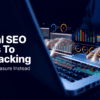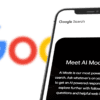Why Your Dental Website Is Getting Ghosted by AI (And How to Fix It)
Welcome to another episode of Byte Sized Podcast! Happy to have you! This is going to be a fun time… so let’s jump right in with a sobering reality check that could be costing you increasing revenue in a snowball of increasing obscurity. See? Fun!
A potential patient opens ChatGPT and asks, “I need a great dentist near me who specializes in dental implants and doesn’t make me feel like I’m about to get interrogated by the dental police.” Instead of your practice name appearing in the response, they get recommendations for three other dental offices in town. Meanwhile, your beautifully SEO optimized dental website sits there gathering dust, completely invisible to the AI revolution happening right in front of it.
Welcome to the brave new world of AI search, where 2.5 billion people are asking ChatGPT questions every single day, and your dental practice might be getting left behind. Adrian Lefler recently sat down with Emily Richardson, co-founder of KNWN and creator of Dual Web, to unpack why AI platforms are becoming the new Google and what dental practices need to do to keep up.
The Death of Traditional Search (RIP Google’s Blue Links)
Emily dropped some seriously eye-opening statistics during the conversation. ChatGPT alone is fielding 2.5 billion queries daily. That’s a 4,000% increase from just a year ago, which means AI search adoption is happening faster than a dental patient can say “I forgot to floss” when you ask about their oral hygiene routine.
“For the first time, the monopoly of Google is at risk and they are trying extremely hard to catch back up,” Richardson explained. “Even Google’s market share went below 90% for the very first time ever. It’s now, I believe, 89.7% or something.”
Think about that for a moment. Google has been the undisputed king of search for over two decades, and now they’re scrambling to keep up with AI platforms. It’s like watching the dental industry’s transition from film X-rays to digital, except this change is happening in months instead of years.
The fundamental difference between traditional search and AI search comes down to user experience. When someone searches “dentist root canal” on Google, they get a list of websites to click through and evaluate. When they pull up ChatGPT and type “I need a dentist for a root canal near me, I have dental anxiety and want someone who specializes in making nervous patients comfortable,” they get a personalized, direct answer with specific recommendations.
Richardson noted that traditional Google searches average about four words, while AI searches average 23 words. People are essentially having conversations with AI instead of typing keywords, which means they’re getting much more specific about their needs and concerns. (And potentially bonding with a robot sentience which has disturbing implications for the future of humanity but let’s solve one problem at a time, folks.)
![[Byte Sized Podcast Ep. 11] Stop Missing 2.5 Billion Daily Searches Why Your Dental Practice Is Invisible to AI Feat. Emily Richardson - dental website,AI - My Social Practice - Helping dental practices find new patients dental website and AI](https://mysocialpractice.com/wp-content/uploads/2025/09/1-x-1-–-social-post-2-1-500x500.png)
How AI Actually Finds and Ranks Dental Practices
Understanding how AI search works is crucial for dental practices that want to show up in results. Unlike Google’s traditional indexing system, AI platforms use something called “query fan out” followed by retrieval augmented generation (RAG).
Here’s how it breaks down: When someone asks an AI platform a complex question about dental services, the AI doesn’t just search for those exact words. Instead, it breaks that single query into 10 or 15 smaller, related queries. So that anxious patient looking for a root canal specialist might generate sub-queries like “dentist near me for dental anxiety,” “dentist near me for root canal,” “kind dentists,” and various other combinations that capture the intent and context.
“It’s looking at the question holistically,” Richardson explained. “Instead of just asking one thing, it asks 15 different queries.”
The AI then runs all these queries through search engines (ChatGPT uses Bing, Gemini uses Google, Perplexity and Claude have their own), gathers the results, and synthesizes them into a single, comprehensive answer. But the kicker is that AI platforms don’t read your entire website like Google does. They grab specific “chunks” of relevant information, synthesize them, and cite their sources.
This fundamental difference in how content is consumed means that dental practices optimized for traditional SEO might be completely invisible to AI search, even if they rank well on Google.
The Speed Trap That’s Killing Your AI Visibility
Richardson dropped a bombshell statistic that should make every dental practice owner immediately check their website speed: “AI stops trying to load your page at 100 milliseconds. So if your page loading time is too slow, that is a real issue.”
To put this in perspective, 100 milliseconds is one-tenth of a second. Most dental websites are nowhere near that fast. “I can guarantee you right now that 90% of the dental websites out there are not fast enough,” Richardson stated bluntly.
Well, then. We’ll pause so you can run a speed test on your website. Go ahead, we’ll wait, we have snacks.
When AI platforms can’t load your website quickly enough, they either skip it entirely or, worse, they make up information about your practice. That’s right, if your site is too slow, AI might literally hallucinate details about your services, location, or specialties. Again, let’s just ignore the wider implications of that for now, it’s fine.
Anyway, this speed requirement is drastically different from traditional SEO, where a site loading in 2-3 seconds is considered acceptable. AI platforms are optimized for instant responses, and if your website can’t keep up, you’re out of the game before it even starts.
The technical reality is that most dental websites are loaded with high-resolution images, videos, JavaScript elements, and other features that make them appealing to human visitors but painfully slow for AI crawlers. Richardson mentioned that AI can’t even load JavaScript, which means any content delivered through JavaScript frameworks is completely invisible to AI platforms.
Enter Dual Web: The Revolutionary Solution for AI Optimization
Richardson’s company has developed what might be the most innovative solution to the AI search challenge: Dual Web technology. The concept is deceptively simple but technically sophisticated.
Dual Web creates a mirror version of your dental practice website that’s specifically optimized for AI consumption. When human visitors come to your site, they see the normal version with all the videos, high-resolution images, and visual elements that make for a great user experience. But when AI bots crawl your site, they’re automatically redirected to the AI-optimized version.
This AI-optimized version strips out all the elements that slow down loading times and restructures the content in a format that AI platforms can easily parse, chunk, and cite. The result is lightning-fast loading times (around 10 milliseconds) and content structured specifically for how AI reads and processes information.
“We bifurcate the traffic so humans see one version and AI bots see the AI-optimized version,” Richardson said. “The AI bots don’t need everything that humans need. The user experience is simply different and the user needs are simply different.”
The beauty of this system is that it’s completely invisible to human users. Even if an AI platform cites the optimized version, clicking on the citation link takes users to the human-friendly version of the site. There’s no change to the user interface or experience for actual website visitors.
The Results: 9x Conversion Rates and Better Rankings
The early results from Dual Web optimization are striking. Richardson reported that people coming through AI platforms to dental websites are nine times more likely to convert compared to traditional Google traffic. This makes sense when you consider that AI search users have already received personalized, detailed answers to their specific questions and are arriving at your website with much higher intent.
“People coming through ChatGPT and AI platforms are nine times more likely to convert than if they came through Google,” Richardson noted. “The amount of authority and trust that’s already kind of assumed with the AI responses is kind of remarkable.”
Beyond conversion rates, practices using Dual Web are seeing three main improvements:
Better placement in AI-generated answers: Brands that were typically mentioned in the middle or bottom of AI responses are moving to top positions, especially in ranked lists and comparisons.
More accurate and favorable descriptions: The AI platforms are highlighting key differentiators and value propositions more effectively, leading to more compelling representations of dental practices.
Reduced hallucinations: Since AI models are drawing from cleaner, structured content instead of complex web pages, they’re making fewer mistakes when describing services, locations, and practice details.
Traditional SEO Isn’t Dead (But It’s Getting a Major Makeover)
Hold your horses, though. Traditional SEO fundamentals aren’t going away entirely. Technical SEO elements like site structure, security, and content quality still matter because AI platforms still use traditional search engines as part of their process. Besides, for now, people still use Google at a higher rate than AI search engines.
However, the way content needs to be structured and written is changing dramatically. Where traditional SEO favored long-form content with extensive background information (think those recipe blogs that tell you someone’s life story before getting to the actual recipe), AI prefers concise, direct answers.
The new approach calls for having the question as the title and the answer as the first sentence. AI platforms want content that reads more like natural speech than formal writing, with clear headlines, summaries, bullet points, and FAQ sections.
Actionable Steps for Dental Practices
While Dual Web represents the cutting edge of AI optimization, Richardson offered several immediate steps that dental practices can take to improve their AI visibility:
Optimize your Google Business Profile: This should be the very first priority. AI platforms frequently cite Google Business Profiles as authoritative sources for local business information. Add comprehensive Q&A sections, ensure all services are listed, and keep information current with regular posts.
Leverage social media strategically: AI platforms are starting to index Instagram content, and Reddit appears in AI citations 14% of the time. Create descriptive, informative captions for social media posts, and consider building a presence on platforms that AI systems frequently reference.
Structure content for AI consumption: Rewrite existing blog posts and service pages with clear headers, bullet points, and FAQ sections. Front-load the most important information and write in a conversational tone that matches how people actually speak.
Monitor your citations: Use tools to track where AI platforms are finding information about your practice. If certain local blogs, directories, or review sites consistently appear in AI citations, focus on building relationships with those sources.
Update your website speed: Even if you’re not ready for Dual Web technology, improving your current site’s loading speed will help with AI visibility. Every millisecond counts in the AI search environment.
The Opportunity Window Is Open (But Not for Long)
Adrian’s perspective on this AI shift drew parallels to the early days of Google Maps optimization, when simple techniques could dramatically improve a practice’s visibility overnight. “Back in ’09 when we started My Social Practice, we had a way to get a doctor to show up in the Google map on the front page of Google Maps. It was actually […] a few little things you could do and boom, they were there and they would get a hundred more calls a month.”
The same opportunity exists today with AI search optimization, but the window won’t stay open forever. As more businesses catch on to the importance of AI visibility, the competition will intensify, and the early movers will have established significant advantages.
Richardson emphasized that this change should be taken as seriously as businesses have traditionally treated Google optimization.
The dental practices that recognize this shift early and adapt their digital strategy accordingly will be the ones capturing the growing pool of patients who prefer AI-powered search. Those that wait will find themselves increasingly invisible to a generation that expects instant, personalized answers to their healthcare questions.
For dental practices looking to stay competitive in an AI-driven world, the message is clear: the future of patient acquisition isn’t just about ranking on Google anymore. It’s about showing up where your patients are actually looking for answers, and increasingly, that’s in conversations with AI.
In This Episode:
Emily Richardson, COO and Co-founder of KNWN
Emily Richardson is the COO and Founder of KNWN, an AI search optimization platform that helps brands show up in AI-generated answers through products like Dual Web and Radar. With over five years in marketing, she’s led growth strategies for leading brands including work at Ibotta that contributed to its IPO. Emily combines her sociology background with deep marketing expertise to bring a human-centered approach to helping businesses thrive in an AI-driven world.
Adrian Lefler, CEO and Co-founder of My Social Practice
Adrian Lefler, CEO of My Social Practice, is a seasoned expert in the dental marketing industry with 14 years of experience. He is widely recognized for his engaging and informative presentations. Based in Suncrest, Utah, Adrian shares his life with his wife, four children, and a lively mix of pets. My Social Practice is a leading dental marketing company, and Adrian is passionate about helping dental professionals succeed in this dynamic field.
Frequently Asked Questions
Do I need to completely rebuild my dental website to optimize for AI search?
No, you don’t need to rebuild your existing website. Technologies like Dual Web create a separate, AI-optimized version of your site that runs parallel to your current website. Your human visitors continue to see the same website they always have, while AI bots are automatically directed to the optimized version. However, you can start improving AI visibility immediately by optimizing your Google Business Profile, restructuring existing content with clear headers and FAQ sections, and improving your site’s loading speed.
How can I tell if my dental practice is showing up in AI search results?
You can test this yourself by asking questions about dental services in your area on platforms like ChatGPT, Claude, Perplexity, and Google’s AI mode. Try queries like “best dentist near [your city] for dental implants” or “dentist for anxious patients in [your area].” More sophisticated tracking requires specialized tools that can monitor how often AI platforms cite your website and track click-through rates from AI search results. Some companies are now offering AI search analytics that show impressions, citations, and ranking positions across different AI platforms.
Will traditional Google SEO become irrelevant for dental practices?
Traditional SEO isn’t dead, but it’s evolving. AI platforms still use traditional search engines as part of their process, so fundamental SEO elements like site structure, security, quality content, and technical optimization remain important. However, the way content needs to be written and structured is changing dramatically. Instead of long-form content that buries the answer, AI prefers concise, direct responses with the question as the title and the answer as the first sentence. Think of it as SEO plus answer engine optimization (AEO) rather than a complete replacement.
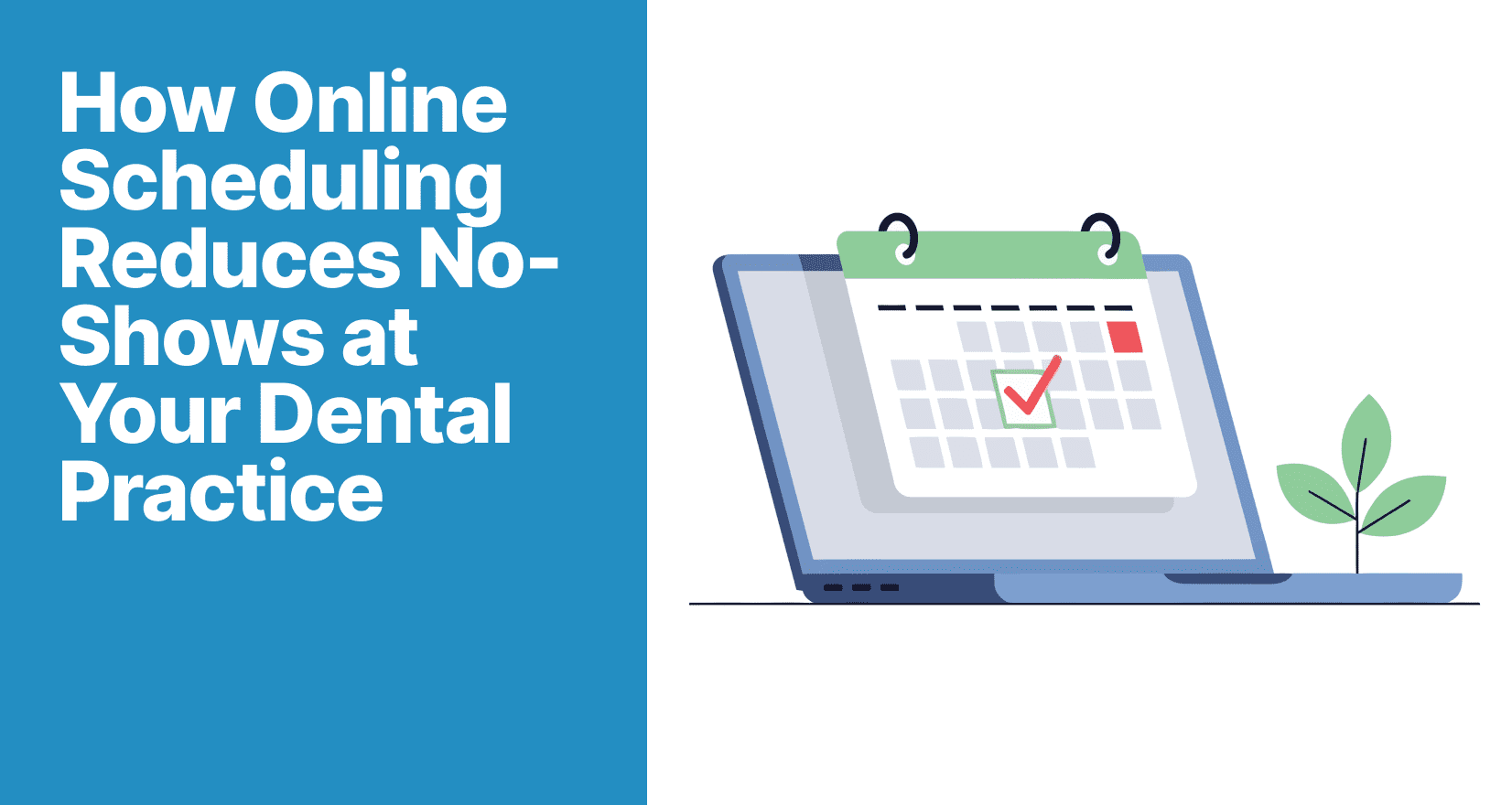
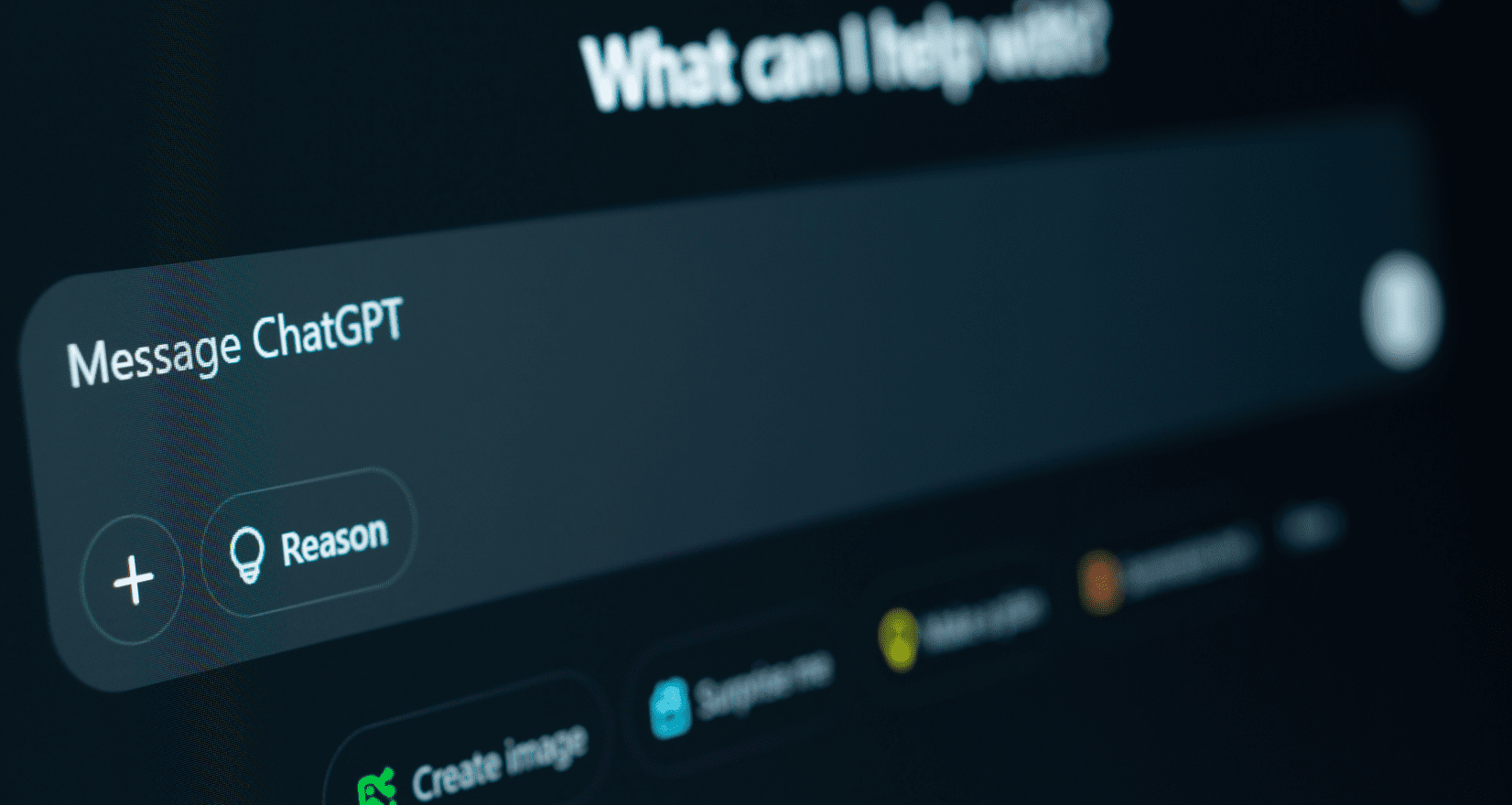
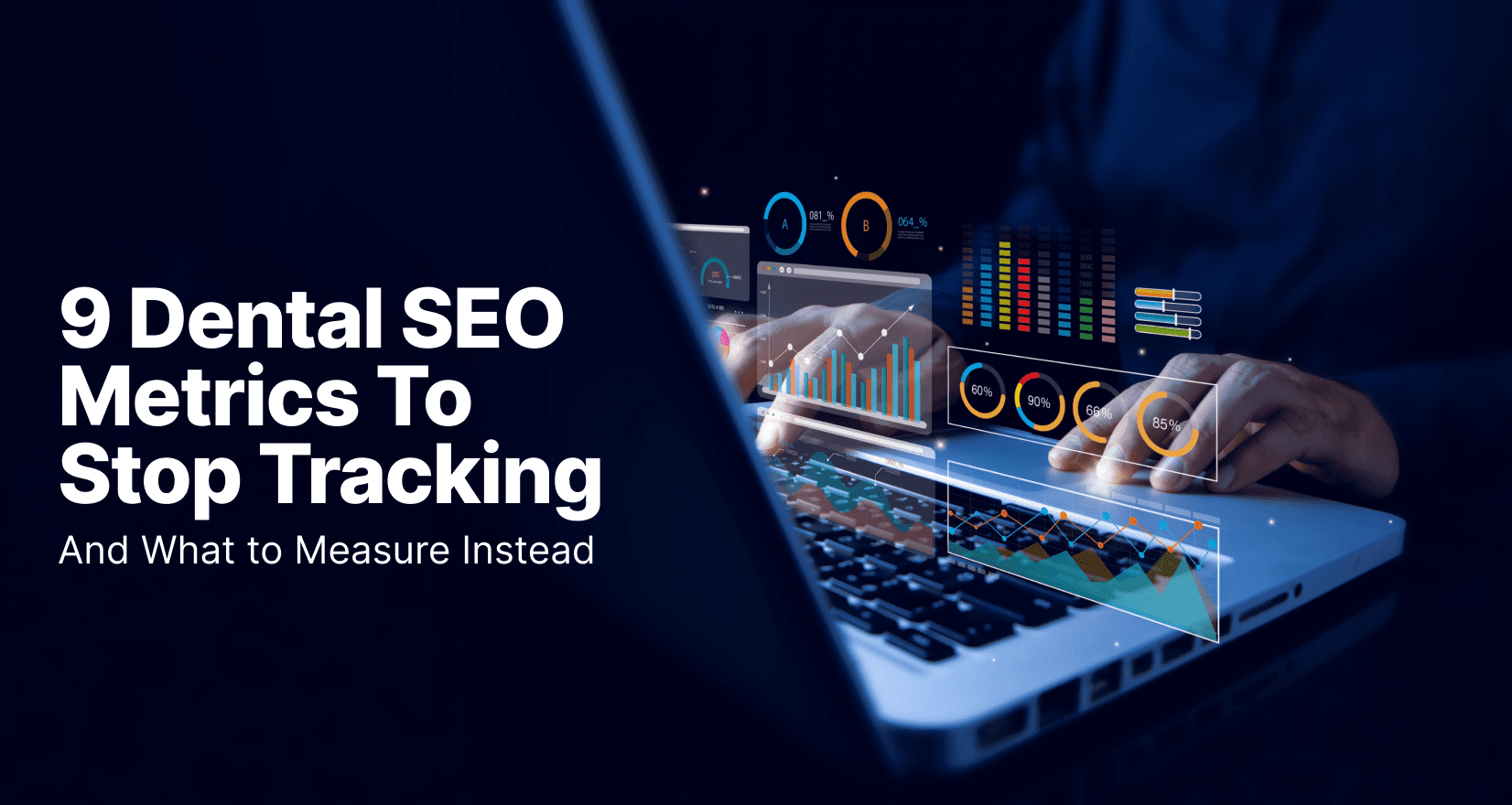
![[Byte Sized Podcast Ep. 11] Stop Missing 2.5 Billion Daily Searches Why Your Dental Practice Is Invisible to AI Feat. Emily Richardson - dental website,AI - My Social Practice - Helping dental practices find new patients New call-to-action](https://no-cache.hubspot.com/cta/default/1942633/46e5c50e-9172-4068-8104-55f887411530.png)
![[Byte Sized Podcast Ep. 11] Stop Missing 2.5 Billion Daily Searches Why Your Dental Practice Is Invisible to AI Feat. Emily Richardson - dental website,AI - My Social Practice - Helping dental practices find new patients New call-to-action](https://no-cache.hubspot.com/cta/default/1942633/300fce83-b1bd-402e-adff-b719414172de.png)
![[Byte Sized Podcast Ep. 11] Stop Missing 2.5 Billion Daily Searches Why Your Dental Practice Is Invisible to AI Feat. Emily Richardson - dental website,AI - My Social Practice - Helping dental practices find new patients My Social Practice - Helping dental practices find new patients - dental website,AI](https://mysocialpractice.com/wp-content/uploads/2025/09/Mask-group-15.png)
![[Byte Sized Podcast Ep. 11] Stop Missing 2.5 Billion Daily Searches Why Your Dental Practice Is Invisible to AI Feat. Emily Richardson - dental website,AI - My Social Practice - Helping dental practices find new patients Dental AI Tools with Adrian Lefler](https://mysocialpractice.com/wp-content/uploads/2024/07/Head-Shot_Adrian_Circle_Large-e1721666265743.png)


